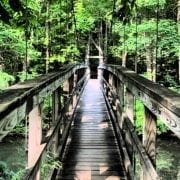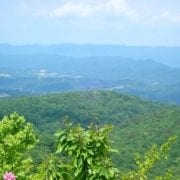The Appalachian Trail by the Numbers
There are some very interesting and amazing facts about the Appalachian trail. The trail was completed in 1938 and is considered America’s original long trail. Myron Avery was the principal driving force in its completion. His vision for the trail was for people to have access to a wilderness hike and to visit the many towns on its route. Today three million people walk on the trail each year; day hikers represent the largest group, section hikers who stay out for a couple of days to a couple of weeks are the next largest group, the smallest group are the 4 thousand who attempt a thru-hike and only one thousand or so complete the hike each year.
Each day the average thru-hiker completes more than a half marathon and climbs the equivalent of the Empire State Building, two to three times.
The trail is twenty-two hundred miles long. Totally climbing over its length is equivalent to submitting Mount Everest sixteen times or climbing a total of 87 miles. Every day climbs are the focal point. We try to schedule meals, rest and water breaks around the climbs. It is always best to climb early or when you have momentum. Climbing after a rest is hard, as lactic acid has settled in, creating lethargy.
The average time it takes to complete the hike is 165 days. We are on a 180-day schedule. Driving this average down are the elite hikers, who will complete the trek in under 120 days.
The average age of a thru-hiker is 27. Only one percent of people who thru-hike are over 65. By now we see less and less older hikers. When we stay at hostels it is very rare to see anyone our age. Plus most people we meet now are thin.
The highest point on the trail is Clingmans Dome in the Great Smokies at 6,643 feet. The lowest point is in New York State at 124 feet. From North Carolina to New England, it is rare to be above 4,000 feet. New England’s mountains are not as high as those in North Carolina, but because of the weather is far more challenging. On average, the tree line in New England is around 4,000 feet. Both Maine and New Hampshire have a number of peaks that are above the tree level line. In fact, New Hampshire has a stretch of above treeline hiking that is 13 miles long. Exposure to weather above the tree line is dangerous and the trail is very rocky.
The trail is maintained by 31 volunteer organizations, who put in 10,000 days of work every year. Without these volunteers, the trail wouldn’t exist. All of us that are hiking always make it a point to say thank you to any and all volunteers.
The trail is well marked and contains 165,000 2 inch by 6 inch white blazes painted on trees, rocks and road signs. Because of this, we don’t need a compass. The white blazes are painted so that you should always be able to see one. We have gotten lost twice, in both cases we figured it out quickly and after we backtracked we saw it was our mistake. We try to look for a white blaze frequently so that when we don’t see one, we check our map.
The average hiker burns 5,500 calories a day. Staying fueled is hard and requires a lot of thought. Each hiker develops their own unique system to eat. However, the average hiker still loses 30 pounds in 6 months. A thru-hiker goes through 4-5 pairs of shoes. We are on our second pair. Rocks do the most damage. Plus most hikers gain a size or two. My feet have gone from a size 10 to almost 12.
The trail crosses a road on average every four miles and shelters are placed on average every 8 miles apart. We are never far away from civilization. Plus there are almost always parking areas on the bigger roads. Allowing for day hikes and not having to camp out. You can hike most of the trail by just doing day hikes.
Only 25% of thru-hikers complete hiking in all 14 states in any year. More than half drop out in the first 500 miles. Those that make it to Damascus, Virginia (mile 470) have a 50 percent chance of completion. Those that do drop out after Damascus, drop because they experienced what they came to the trail to find. Some drop out because they ran out of money. Others get mentally tired of the monotony of hiking 15-20 miles every day. The people who drop out before Damascus are usually injuries or find that the hike wasn’t what they were looking for.
We are now in the Shenandoah’s and looking ahead to finishing Virginia. Ahead of us lies bigger towns than the ones we visited in the south. For us, this means more familiar places, near where have lived or visited.
Blessings, until next time,
Bruce L. Hartman






